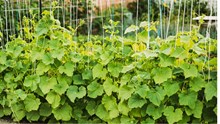
Despite the fact that it very well may not be possible to totally free your nursery from ants, yet some natural techniques can help control their populaces.
Below are 6 ways for getting rid of ants:
- Mix of borax, water and sugar:
A combination of borax and sugar is a successful method to control ants in the nursery. Blend half cup of sugar with one and a half tablespoons of borax along with one and a half cup of warm water. Drench cotton balls in the sweet insect trap and put them where ants are in your nursery.
Borax and sugar mix is a successful method to kill the whole colony of ants. The benefit of utilizing borax is that it's deadly to ants. Anyway it doesn't slaughter them right away. Laborer ants will eat the borax mix and convey it to their province for different ants to eat. This assists with executing ants under the soil in their colony.
- Mix of cornmeal, borax and oil:
You could utilize cornmeal as bait and slaughter ants in your nursery. For cornmeal to be powerful bait, you should blend it in with borax. Blend nine sections of boric acid with one section of cornmeal. Add some vegetable oil to make a super smooth paste. Put in a plastic jug, punch a few openings, and spot it where you see any ant action.
It's a legend that cornmeal alone kills nursery ants. Cornmeal will draw in ants as they look for food, and the boric acid will execute them. The benefit of cornmeal and borax is that it's moderate working, and ants take the "food" back to their home.
- Mix of water and vinegar:
Vinegar is another approach to take out ant perversions from your nursery. Mix equivalent amounts of white vinegar and water and fill a splash bottle. You can spray the vinegar arrangement straightforwardly on ants to kill them instantly.
Applicability wise, this method is very time consuming and can be ineffective at times.
- By using diatomaceous earth (DE):
DE is a non-poisonous natural substance capable of killing ants. Spreading a layer of DE at any place you notice any ant action is enough for it to kill the ants. One thing to keep in mind is that the soil has to be dry for DE to work properly. If there is a rain fall in between, you can always reapply a layer of DE. Diatomaceous earth kills ants by wrecking the ants' external layer and killing the same from dehydration.
DE might not deal with all types of ants. Many gardeners commented that it's best for regular black or dark ants. However, DE is readily available and cheap to buy. You can always give it a shot in your nursery.
- By eradication of aphids:
All the time, aphids draw in ants, and ants at that point shield aphids from their enemies. Aphids rapidly wreck plants and can cause huge issues in vegetable nurseries. Nonetheless, ants may alarm you of an aphid invasion. Seeing numerous ants around one specific plant or a few plants could be an indication of aphids.
To free your nursery plants of aphids, blend one tablespoon of fluid dish cleanser with a gallon (4 Liter) of water. Blend well in a sprayer and generously shower foliage on the two sides to dispose of aphids and other nursery bugs. Reapply the aphid bug shower often to annihilate aphids.
- By using boiling water:
Pouring hot boiling water straightforwardly on ant homes will slaughter the vast majority of the ants in the settlement. On the off chance that you notice an ant colony, you should scrape the soil away. At that point empty a lot of hot boiled water into the home. Ideally, you can kill the greater part of the ants, including the queen ant. Obviously, you should be cautious while dealing with hot water.
Next time you see any ant colony forming in your garden, apply any of the above mentioned ways to get rid of the same!
















